On the 22 – 24 of March 2016 the second consecutive training for customs authorities was held at the premises of the State Enterprise "Ukrainian Institute of Intellectual Property" in the framework of the EU Twinning “Strengthening the protection and enforcement of intellectual property rights in Ukraine”. The following participants attended the event: representatives of regional customs of the State Fiscal Service of Ukraine (SFS), central department of the SFS, Kyiv regional customs, State Research Institute and the University of Customs of the SFS. Overall, more than 50 participants attended the event.
On the 22 – 24 of March 2016 the second consecutive training for customs authorities was held at the premises of the State Enterprise "Ukrainian Institute of Intellectual Property" in the framework of the EU Twinning “Strengthening the protection and enforcement of intellectual property rights in Ukraine”. The following participants attended the event: representatives of regional customs of the State Fiscal Service of Ukraine (SFS), central department of the SFS, Kyiv regional customs, State Research Institute and the University of Customs of the SFS. Overall, more than 50 participants attended the event.
Mr. Pablo Rodenas, Resident Twinning Adviser, started the training with an introductory speech, presenting the training’s agenda to the audience, underlining the necessity of this training in the context of the legal approximation with the acquis communautaire in the field of customs enforcement. That is the reason why it is important to share the EU best practices in the aspects which are new to Ukrainian custom officers.
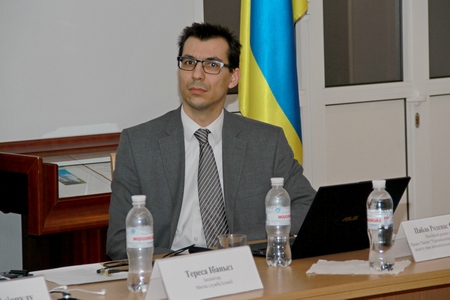 |
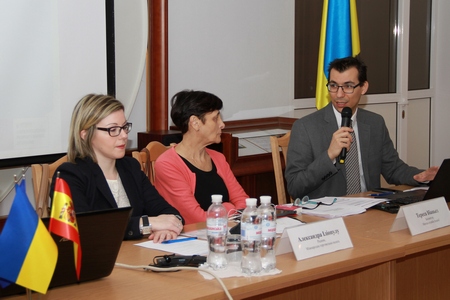 |
The training modules were started with a presentation of Mrs. Alexandra Iliopulu, International Chamber of Commerce adviser, who focused on the global scale of issues with the IPR protection and the fight against counterfeiting. According to her, the total value of pirated and counterfeit products in the world today is higher than the combined GDP of 150 countries. According to a study of the Organization for Economic Cooperation and Development (OECD) counterfeit products moved across borders annually are worth around 250 billion dollars. Pharmaceuticals products account for more that half of the counterfeiting goods; other important categories of counterfeit are household goods and food, and this fact is very dangerous for consumers. In 2014, EU customs authorities had registered more than 95 thousand of detention cases for more than 35 million units of goods that infringe IPR. The list is headed by tobacco products (35%), followed by toys and medicines, and the total proportion of goods of everyday use is of 28.6%. Mrs. Alexandra Iliopulu gave examples of successful operations to seize counterfeit, which were conducted in recent years by the Interpol-Europol and the World Customs Organization; drew attention to the interest of organized criminal groups in increasing circulation counterfeiting. Also, the European expert described the role of the IPR intensive industries in business development, safety and health of consumers, in creating new jobs.
In the next training modules Mrs. Teresa Ibanez, an official of the Customs Service of Spain, offered the audience a detailed analysis of EU regulation № 608/2013 on customs enforcement of intellectual property rights and the corresponding Implementing Regulation № 1352/2013; analyzed the main features of the legal framework application in situations when the goods enter the EU customs zone or leave it; defined the concept of pirated goods, of ex-officio actions in case of IPR infringements. The expert described in details the procedure for submitting and processing the Application for action. Ukrainian customs officers also had the opportunity to learn about the principles of the system of protection of trade marks and IP (COPIS), with examples of falsified products bearing the "Champagne" designation and examples of characteristic elements of other counterfeited goods (batteries Duracell, products of BIC).
An important part of the training was devoted to risk analysis, which helps to improve the efficiency of customs control. In its presentation, Mrs. Teresa Ibanez explained a number of important issues: the system of risk management, risk analysis for summary declarations, filters, examination of goods, custom clearance and documentation, cooperation with the Civil Guard in combating the counterfeiting. The Spanish expert noted that in 2015 the Spanish Customs detained almost 2.6 million counterfeit goods within 2,504 operations, opened a 28.4% cases more than in 2014. The cost of detained illegal goods in case they would have entered the market was put to 129.9 million euros.
A special training module was dedicated to the type of infringement called “parallel imports” of original goods from countries that are outside the EU. Also, special attention was paid to the geographical indication and designation of origin, different systems of protection for this intellectual property right.
The third day of the event was held with the participation of the right holders, who presented the most common cases of IPR violations and explained the appropriate precautions for the trademarks Lacoste, Lee, Wrangler, Nike, WD-40, Reckitt Benkiser, LVMH. The audience also had the opportunity to familiarize themselves with protection elements against counterfeiting on real samples of sports shoes.
At the end of the program, all trainees received certificates of participation in this Twinning Project’s. We remind you that that this component of the project foresees four training sessions to be held from January to June 2016 with involvement of all regional customs of Ukraine.
The experts are ready to share with you all the presentation of the training (in Ukrainian) that you may download following the link below.
"Importance of IPR enforcement at the custom border" (PDF, 0,3 MB)
"EU Regulation 608/2013 and the Implementing Regulation 1352/2013" (PDF, 2,3 MB)
"Application for Action" (PDF, 4,2 MB)
"Practical application of the EU Regulation 608/2013 by the custom officer. Risk analysis" (PDF, 3,5 MB)
"Parallel import" (PDF, 0,4 MB)
"Geographical indications: definitions and general principals. EU-Ukraine Association Agreement" (PDF, 0,8 MB)
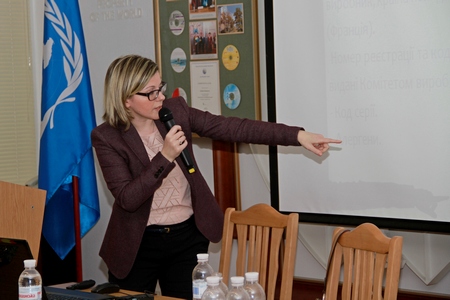 |
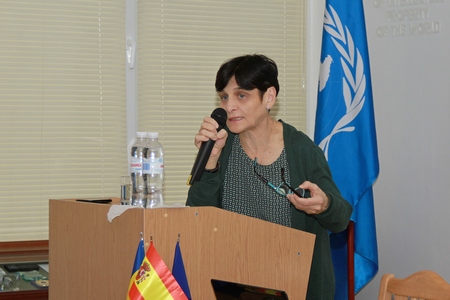 |
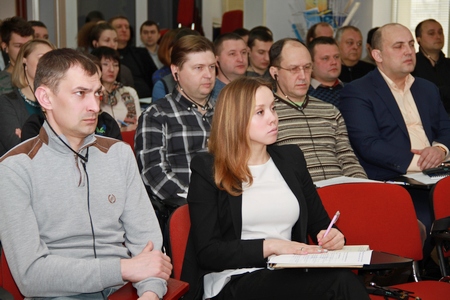 |
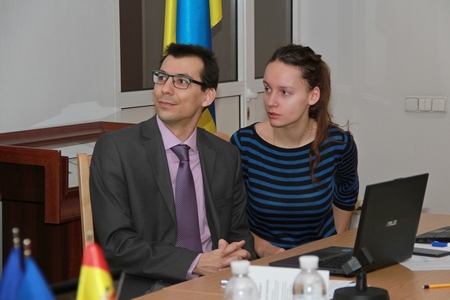 |
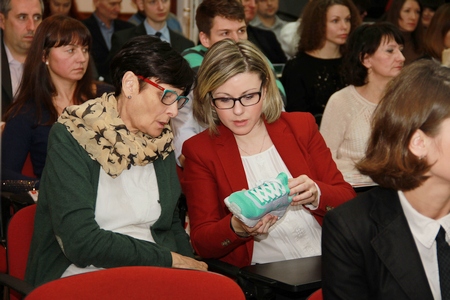 |
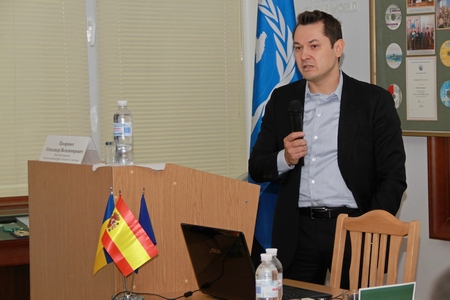 |
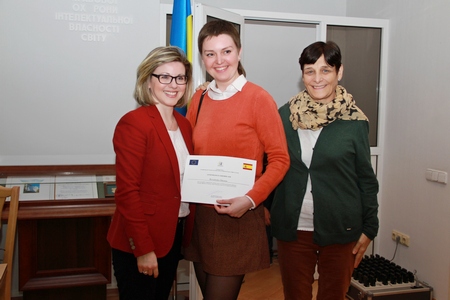 |
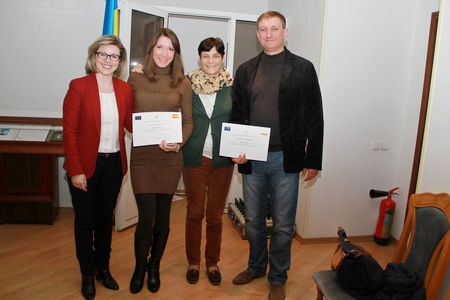 |
